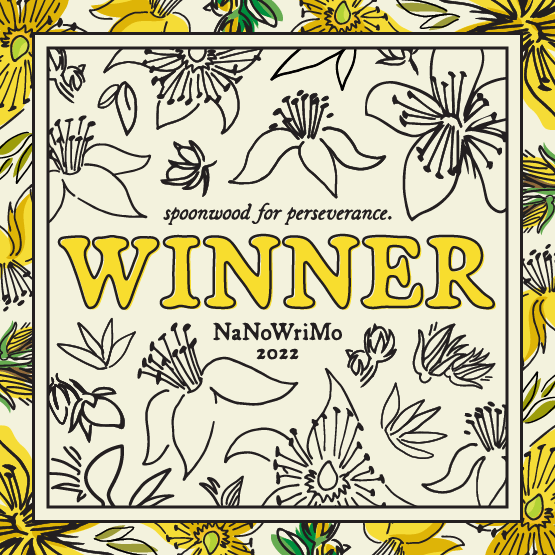There is a piece of advice going around the writing circles that basically all experts agree on, to finish your draft before you start editing. It’s solid writing advice since editing slows you down, and you might need to tell yourself the story in full first before you know how to edit it. I think it’s also very applicable advice for new writers, those that struggle with finishing or get caught up in editing so much, they lose the will to continue.
Despite agreeing with this advice, I have been consistently breaking it, and I’ve always felt guilty about it, blaming my slow progress on this unhealthy compulsion to edit.
But what if it isn’t a bad thing?
For the purposes of this article, I would like to clarify that by editing I mean content editing, not proofreading. Prettifying your language and fixing typos can always wait for the next draft.
Why do I break the no edits while writing rule?
Even a small change can affect all scenes going forward. If I keep writing without fixing the earlier problem, everything going forward will feel off and will require even bigger revisions later. And I’ll tell you, when every chapter you wrote feels off, it makes you think that the entire story is off, that it needs to be scrapped and rewritten from the ground up. These rewrites can be avoided if I take a step back during the writing process to make those little fixes.
Little fixes now can mean fewer fixes down the road, but that is only the end result. It’s never been my intention to interrupt writing to edit.
Lately, in an effort to prioritize my mental wellbeing, I’ve lowered the pressure I’ve put on myself in the past. As a result, my writing progress has been slow. In the past few weeks, I’ve gone over previous chapters to edit them a lot more than adding new ones because that’s all my tired brain has been able to handle.
Even before this attempt to reduce stress, my writing process involved reading or listening to previously-written chapters before writing a new one. I do it to get myself into the character’s head and to understand their situation. In doing so, I sometimes notice that something feels off. This “off” feeling usually leads me to the character’s mental state: they’re not processing the previous revelation or are reacting to it inconsistently with their established patterns. And so I fix these scenes (or I leave myself a note to return later if I don’t immediately know what’s wrong). Fixing those “off” feelings usually requires a small change, could be as little as two sentences, but it has the potential to make a huge difference.
I break the most agreed-upon writing rule when I stop to edit, but as a result of this habit, my story is taking a very solid shape. Character actions make sense, everything flows smoothly and themes are surfacing that I didn’t predict. I really like what it’s turning into.
Wait—breaking this rule makes me a better storyteller?
Yes. Exactly. I have been reaping the benefits of my rebellious editing streak, and I’m starting to question the validity of this advice. Who is it really aimed at?
Are there disadvantages to not editing while writing?
At the risk of the entire writing community coming after me, I am going to tell you that YES, you take a great risk when you don’t stop to fix the story you’re writing.
Hear me out. I have tried to follow this advice more than once: I wrote a draft from beginning to the end without looking back until the draft was finished just like the well-meaning experts advise you to. And what do all those stories have in common? I’m not happy with those first drafts. Each one has to be completely rewritten from scratch because somewhere down the process of blindly writing the story without going back to check if it made sense, something went wrong, stopped working, and sent me down the wrong path.
But other stories where I periodically stopped and went back a few chapters to fix them have turned out great and only needed small edits later.
So, what if this edit while you write process isn’t so bad? If the end result is a story that flows properly from chapter to chapter, then maybe it’s worth it to write it slowly like this. Maybe this is the process that works for me, and maybe I’m not the only one that can benefit from hearing this.
So why is that advice consistently being given?
I think it’s valid and useful advice for:
- Writers that struggle with finishing their stories. After all, it is true that you can’t edit an empty page. If you can’t finish it, don’t edit it.
- Writers that don’t mind rewriting their stories. Believe it or not, there are writers who do this with every story on purpose because that process works for them.
- Discovery writers (pantsers) that literally don’t know what story they’re telling until they tell it in full.
If you’re one of those, then maybe you should continue to follow this advice. If you’re a new writer, even more so because you likely don’t even know yet if you fall into any of those categories.
As for me, none of those reasons apply.
- I’ve already proven to myself that I can finish a story. And I’ve learned a lot of tricks for overcoming a writer’s block. I don’t struggle with finishing my stories.
- I do mind rewriting my stories. I do it when I have to, but I don’t enjoy how long it takes. The reality is that if you’re writing while holding a full-time job that you need to pay the bills and support your family, time is precious.
- I’m not just a compulsive editor. I’m also a compulsive planner. I plan before, during, and after writing my draft. So I DO already know what story I’m telling when I write it.
Can you write and edit at the same time?
Yes, but incrementally. I don’t recommend editing every scene right after writing it. It’s safer to edit by sequences or acts, whichever feels more natural to you. If you edit too often in too-small chunks, you might fail to see the big picture and waste your time.
Considering the positive results, I am going to stop beating myself over this habit. Instead of writing fast and needing tons of edits/rewrites later, I’m going to continue writing and periodically editing. My draft might take a bit longer to complete, but in the end, it will (hopefully) need fewer edits after.
It’s time to stop following advice meant for others and do what works for me.
But I want to hear from you. Do you dare to break the no editing rule and join me in my rebellion or does the rule work for you?
Discover more from Isobel Lynx
Subscribe to get the latest posts sent to your email.



